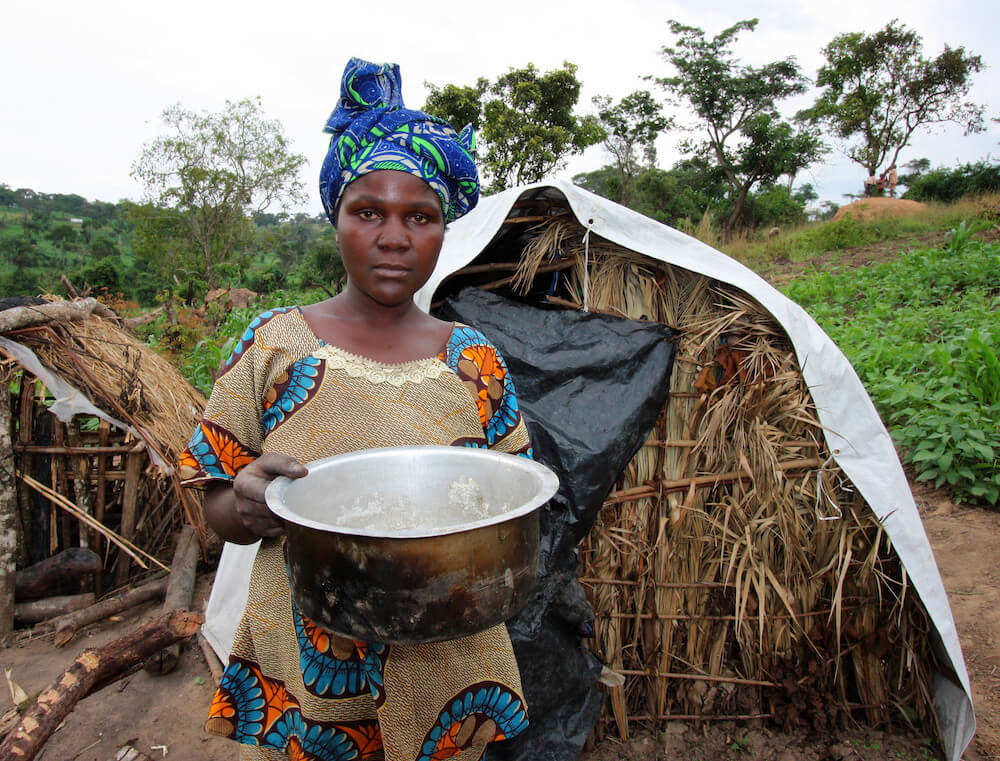
This Financial Inclusion Week, we’re asking ourselves what the purpose of our work is. For those of us who work with refugees, financial inclusion is often for rebuilding sustainable livelihoods, resilience, and self-reliance.
Driven by necessity and limited employment choices, many refugees decide to start a business once they settle in a host country. However, lack of financial capital represents a major stumbling block on the way to business success. Financial service providers (FSPs) in a number of countries are starting to become aware of the potential of this underserved market, but much of the work is still at an incipient phase. FSPs often have questions related to whether operations adjustments may be required, strategies to follow to reduce credit risk, and supporting non-financial services. While every context is different, some good practices are emerging among a number of FSPs, which have been extending credit and other financial services to refugees. Drawing on their experiences, here are four recommendations for FSPs on how to start including this underserved market in their microfinance portfolio:
1. Analyze market data for better targeting.
Refugees aren’t a homogeneous group, so FSPs first need to understand the differences of their socio-economic characteristics to be able to make an informed decision regarding which sub-segments they wish to serve. Relevant data for a first screening may be offered by local development and humanitarian agencies, and – in addition to basic demographic information – should ideally include data such as vocational or business training received, access to start-up financing, access to bank accounts, description of enterprises, and membership to any existing saving groups. Sometimes this data may be unavailable or insufficient, and market feasibility studies may be required. Especially in countries with high concentration of refugees living in settlements where FSPs have no presence, this would require set-up costs for branches or delivery channels.
A study revealed that refugee communities had enough financial capacity to be good clients.
To identify the potential market of serving refugee entrepreneurs in the West Nile region, VisionFund Uganda conducted an assessment of 6,700 refugee members of existing saving groups. The study revealed that the refugee communities had enough financial capacity to be good clients, given the presence of daily and weekly markets in the camps, availability of fairly good network coverage, and mobile money agents and existence of entrepreneurial groups and business activity. The results from this assessment, when considered alongside data collected from a broader market survey previously conducted by Microfinanza, convinced the MFI to set-up their first branch in the West Nile and start serving refugees.
2. Widen the range of acceptable forms of IDs while complying with regulation.
Depending on FSPs’ internal policies and the host country’s regulatory framework, adjustments to FSPS’ internal procedures may be required to serve refugees clients. MyBucks in Malawi is the first financial institution to provide a full range of financial services to clients at a refugee camp. Refugees in the Dzaleka camp had no access to FSP providers until last year and had to travel roughly 40 kilometers to the nearest city of Lilongwe to access financial services. The bank saw the business potential of this untapped market, but in order to serve refugees, MyBucks needed to tailor its offering by widening the acceptable forms of identification. Refugee clients often don’t meet KYC policies required by the bank – such as a passport or national ID – and don’t own land properties that the bank can use as securities. Therefore, in order to comply with the country’s regulations, MyBucks sought a waiver from the central bank to use refugee forms provided by UNHCR to allow refugees to open bank accounts. Today, the bank, which opened its first branch in April 2018, is offering a full range of banking services to refugees.
As of July 2019, 153 refugee entrepreneurs have received business loans from the bank, which relies on group lending methodology to lower credit risks in extending collateral-free loans to refugees. Each individual has to repay according to his/her amount and repayment schedule. The group guarantees for the members, in case a member can’t repay on time. Repayment rates to date are 100 percent. MFIs in other countries which don’t have to comply to stringent banking regulations, have also been accepting old refugee IDs and expired passports as means to verify identities. A number of new identification and verification measures through blockchain are also starting to emerge which provide innovative tools to verify people’s identities and monitor risk in financial transactions.
A digital identity for refugees has been piloted in Jordan and Lebanon by local MFIs. This provides their clients with a “portable identity” that verifies their foundational identification (government or UNHCR issued) digitally, records their credit history, and uploads other important documents. This identity will be especially useful in case a refugee wishes to access banking services upon return to the home country or in case of resettlement, and can also work as an incentive to repay the loan on time.
3. Establish alternative procedures to mitigate credit risk.
FSPs are used to the conventional eligibility requirements that proof of citizenship, identity, and residency cards reduce credit risk. Nevertheless, there can be other ways to monitor risk and to verify IDs by adding some flexibility to documentation required. AlMajmoua is the biggest MFI in Lebanon, the country with the highest number of refugees relative to its population. The MFI serves over 9,000 refugee borrowers with a loan portfolio of over $9 million and repayment rates of almost 100 percent, making it the financial institution with the highest number of refugee borrowers served in a country. More than half of the loans disbursed by AlMajmoua to refugees are for income generation in the limited sectors were refugees are allowed to work in the country, such as field crops, cleaning services, sewing, selling clothes and hairdressing.
AlMajmoua serves over 9,000 refugee borrowers with a loan portfolio of over $9 million and repayment rates of almost 100 percent.
How did this MFI succeed in reaching thousands of refugee clients – many of which through individual loans, so where no social guarantee can be applied – with excellent repayments? To mitigate credit risk, the MFI primarily relies on a strong communication channel between their loan officers and clients by conducting regular business visits, which also allow it to find out whether refugees may have imminent plans to return to their home country or relocate. Additionally, AlMajmoua exceptionally provides loans up to $1,500 to refugees who don’t hold an active residency permit as long as they have a Lebanese, Palestinian or Syrian guarantor with a valid residency permit.
4. If you provide enterprise support services, consider what would be relevant for refugees new to business.
Sometimes credit isn’t sufficient to initiate and scale up a business activity and refugees may need the support of incubators and start-up technical assistance. Some FSPs might already have their training curricula well developed, which might have to be adapted to the needs of the foreign-born clients. Microfund for Women (MFW), Jordan’s largest not-for-profit microfinance institution, serves over 7,500 Syrian refugees, approximately 40 percent of whom are involved in income generation activities, mostly commercial and home-based services. For MFW, it proved particularly important to accompany loans with non-financial services tailored around refugee women’s specific needs (most of their Syrian refugee women clients were not working before the war started). The MFI has established a learning academy and developed training curricula for both beneficiaries and staff members related to market ofrientation, business management skills, financial literacy, and marketing. In addition. MFW offers free feasibility studies for start-up entrepreneurial businesses with loan amounts higher than $4,000.
When FSPs don’t offer such services, they may be able to partner with organizations offering that do. For example, ILO is adapting its business skills development training tools to the needs of the displaced population and the local context, and is now planning to train refugees and host communities to develop their own enterprises and facilitate access to finance. A first training has already been deployed in Kenya through the Danish Refugee Council in the Dadaab refugee camps.
When FSPs don’t offer such services, they may be able to partner with organizations that do.
Hopefully, this post will spark FSPs to realize the important role they have in finding solutions to the refugee crisis. By extending their services to the refugee population in their country, FSPs won’t only support the resilience and self-reliance of this widely underserved market, they will also assist in overcoming stigma and helping refugees contribute economically and socially to host communities.









